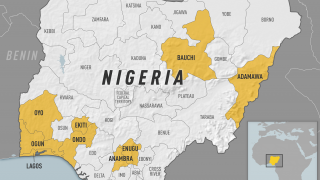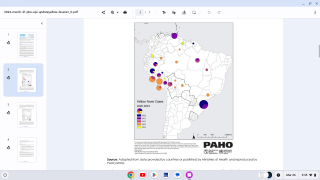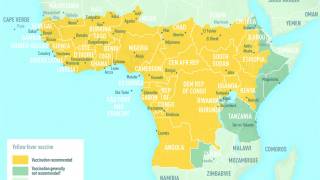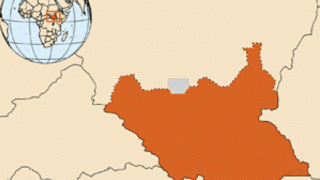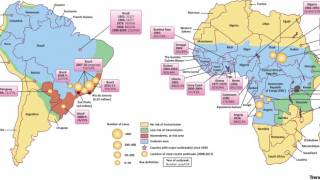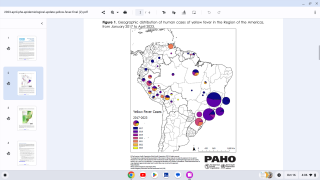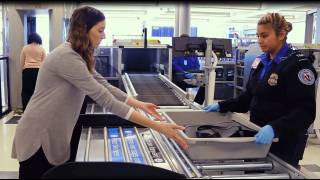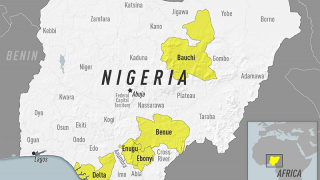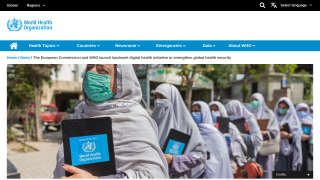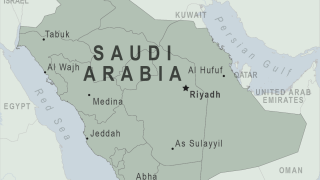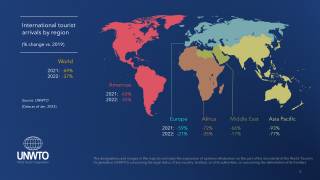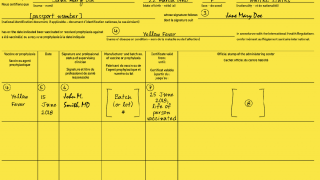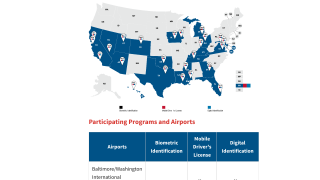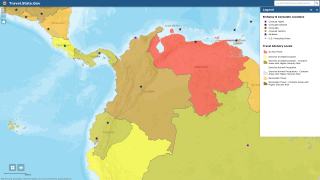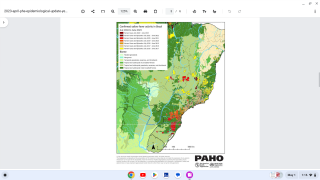Fake Yellow Fever Cards Could Cause A Worldwide Outbreak

The west African country Nigeria has introduced a new vaccine registry in an attempt to reduce the flow of counterfeit Yellow Fever Virus certificates.
But, according to a report published in The Lancet on July 20, 2019, it is still possible to obtain a government-issued Yellow Fever vaccination certificate in Nigeria, without actually getting the Stamaril vaccine.
This report is unfortunate news since Yellow Fever virus outbreaks are very serious.
As an example, an outbreak in central Africa caused 4,347 suspected cases with 377 deaths in 2016.
Furthermore, during this outbreak, 11 unvaccinated Chinese nationals were infected with Yellow Fever and traveled to China, importing the disease for the first time.
Approximately 12 percent of infected people progress to a more serious form of the disease, characterized by jaundice, hemorrhagic symptoms, and eventually shock and multisystem organ failure.
The case-fatality ratio for Severe Yellow Fever is up to 60 percent.
During 2018, the disease burden in Africa was estimated at 84,000–170,000 Severe Yellow Fever cases and 29,000–60,000 deaths, reported the World Health Organization (WHO).
The Yellow Fever (YF) virus is the ‘only’ disease specified by the WHO for which countries can require proof of vaccination from international visitors.
“Contravention of the International Certificate of Vaccination or Prophylaxis (ICVP) comes in various forms,” Oyewale Tomori, professor of virology and former vice-chancellor of Redeemer's University in Ogun State, Nigeria, told The Lancet.
The ICVP as described by the WHO International Health Regulations (IHR) 2005 and often called the Yellow Card, has long been accepted as evidence of a traveler's vaccination status.
But there are serious process issues with the ICVP today, such as:
- cost of getting a vaccination certificate
- limited vaccine supply
- the 10-day delay between vaccination and immunity verification
- vaccine hesitancy
“This (fraud) has been going on for decades”, Tomori said. “The yellow fever vaccination certificate is just another certificate that can be falsely obtained.”
Recent developments have meant that falsification of the certificates is becoming more threatening to the epidemiological control of the disease.
“In the past 4 or 5 years, there has been an increased transmission of the disease in both Africa and tropical America and that has led to an increased need for vaccine”, says Gubler.
“After epidemics in Africa and Brazil, the world's stock of vaccines has recently been greatly reduced.”
“The recent shortage of vaccine, in combination with the [recent yellow fever] epidemics, has created an ideal opportunity for the people who take advantage of this situation to make a dollar.”
“It has stimulated the increased use of counterfeit vaccination cards”, Gubler said.
Cases of ICVP counterfeiting abounds in local media reports, reported The Lancet.
In December 2018, local media in Zambia reported that ICVPs were being openly sold at the Inter-City Bus Terminus in Lusaka to travelers who could not afford the cost of getting vaccinated.
In India, an acute shortage of ICVP and corruption has created a market for the fake yellow fever cards for travelers dating back to 2013.
The country of Nigeria has long contended with the booming trade of fake ICVPs, with airport staff and port health officials selling pre-signed and stamped ICVPs to travelers waiting in line for check-in at airports for less than $10 without any evidence of vaccination.
But the Nigerian Government officially took action in December 2018 and introduced a new ‘e-Yellow Card.’
“The card has the ability to store vaccination history of the holder, was designed to put an end to the era of fake Yellow Cards issued by unauthorized personnel for years”, the Nigeria Ministry of Health said in a statement.
Additionally, to immediately increase the use of the new e-Cards, the previous yellow fever vaccination certificates became invalid as of July 1, 2019.
All new e-Cards are added to a national digital repository, hence removing the risk of falsified cards being used to cross the border.
Yellow Fever vaccine news
- Attending Peru’s Pan American & Parapan American Games Includes Risks
- Top 10 Travel Alerts and Vaccines for Summer 2019
- Hajj Vaccination Requirements Updated for 2019
- Yellow Fever Vaccination Does Not Increase Severe Dengue Risks
- Yellow Fever Vaccine Production Ramping Up
- Brazil Reports Yellow Fever Fatality Rate of 23%
But, The Lancet has found that travelers can legally receive the new vaccine e-card without presenting any evidence of Yellow Fever immunization.
The Lancet applied for, and obtained, the new e-Yellow Card in Ibadan, Nigeria, without presenting any evidence of receiving the vaccination.
In addition, members of a delegation of Nigerians from Ogun, Oyo, Lagos, Imo, and Abuja that subsequently traveled to Ghana were also able to obtain vaccination cards from centers across the country without producing any evidence of vaccination.
Morenike Alex-Okoh, director of Port Health Services at the Lagos airport, noted that the observations made by The Lancet are ‘serious and need to be looked into. And it is unacceptable for staff to ignore the immunization details.’
“There is a need to focus on the right processes, educate the public, and provide access to report irregularities and a mechanism for handling the consequences”, Alex-Okoh told The Lancet.
Although the Nigeria Centre for Disease Control told The Lancet that there is no current yellow fever outbreak, experts argued the country remains at risk while also posing substantial risks to global health.
“I think that yellow fever has a potential to be the next global pandemic”, Gubler says.
“Approximately 60 million people a year move to and from yellow fever endemic areas into non-endemic areas permissive to transmission.”
“That is probably an underestimation. Sooner or later, you are going to have a problem.”
“In 2018, there were more exported yellow fever cases confirmed from yellow fever endemic countries than in the previous 20 years.”
“If there was a global pandemic of yellow fever we would need billions of vaccine doses,” Gubler says.
”The Yellow Card alone is probably not going to do the trick—it needs to be part of a concerted program that includes better surveillance, wider vaccine coverage, better mosquito control—but [the Yellow Card] is going to be a crucial component of any program we put together to get on top of this problem”.
Separately, according to the new travel guidelines issued by the East African Community (EAC) countries, you will be required to show proof of yellow fever vaccination prior to entry.
This EAC announcement on June 10, 2019, means that ‘anyone without a valid yellow fever vaccination certificate will be denied entry to Kenya, Tanzania, Uganda, Rwanda, Burundi or Sudan,’ explained the EAC’s Dr. Michael J. Katende.
Yellow Fever Vaccines
The best way to prevent spreading the Yellow Fever virus is to avoid mosquito bites, says the US Centers for Disease Control and Prevention (CDC).
Yellow Fever is preventable by a relatively safe, effective vaccine. All YF vaccines currently manufactured are live attenuated, viral vaccines.
For all eligible people, a single 0.5-mL injection of reconstituted vaccine should be administered subcutaneously.
Fractional dosing of yellow fever vaccine (0.1 mL) has been used recently in several countries to control large yellow fever outbreaks during conditions of limited vaccine availability, says the CDC.
In the United States, the FDA has not approved fractional dosing of yellow fever vaccine.
Furthermore, the WHO notes that a fractional dose of yellow fever vaccine does not meet the requirements of a dose of vaccine, therefore, proof of vaccination may not be issued to a person who has received only a fractional dose.
Because of the risk of serious adverse events after YF vaccination, clinicians should only vaccinate people who are at risk of exposure to YF virus or who require proof of vaccination to enter a country.
Only one YF vaccine (YF-Vax, Sanofi Pasteur) is licensed for use in the USA. However, there have been periodic shortages of the YF-Vax vaccine.
Due to the shortage of YF-Vax, Stamaril, another YF vaccine produced by Sanofi Pasteur, is available in the USA under an expanded-access investigational new drug protocol.
There are no substantial differences in reactogenicity or immunogenicity of the different YF vaccine products, says the CDC.
People who receive YF vaccines licensed in other countries but not approved by the US Food and Drug Administration (FDA) should be considered protected against YF.
Travel vaccines
For the most up-to-date information on YF vaccine availability, providers should check the CDC Travelers’ Health website.
The CDC says ‘since early 2018, a number of unvaccinated travelers to Brazil contracted yellow fever in the Rio de Janeiro State.’
And, Brazil requires visitors to provide a vaccination certificate prior to entry.
In the USA, official ICVPs are available for purchase from the Government Printing Office bookstore. To order, please visit U.S. Government Bookstore or call toll-free (866) 512-1800.
The WHO in Geneva, Switzerland, also sells a version of the ICVP. Click here to access the WHO bookstore.
The WHO and the Nigeria Ministry of Health were contacted for this report but were not available to answer The Lancet's queries for information.
Our Trust Standards: Medical Advisory Committee



